The Colors Of Space
None
They had skin of a curious pale silvery gray, and pale, pure-white hair rising in what looked like a feathery crest. The eyes were long and slanting, the forehead high and narrow, the nose delicately thin and chiseled with long vertically slit nostrils, the ears long, pointed and lobeless. The mouth looked almost human, though the chin was abnormally pointed. The hands would almost have passed inspection as human hands—except for the long, triangular nails curved over the fingertips like the claws of a cat. They wore skin-tight clothes of some metallic silky stuff, and long flowing gleaming silvery capes. They looked unearthly, elfin and strange, and in their own way they were beautiful.



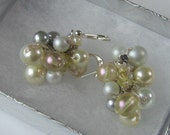


Bart sipped the cold Lhari drink, seeing himself in the mirror behind the refreshment stand; a tall teen-ager, looking older than his seventeen years. He was lithe and well muscled from five years of sports and acrobatics at the Space Academy, he had curling red hair and gray eyes, and he was almost as tall as a Lhari.




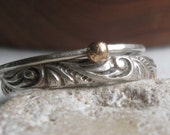

"She was a mathematician. Before the Lhari met up with men, they used a system of mathematics as clumsy as the old Roman numerals. You have to admire them, when you realize that they learned stellar navigation with their old system, though most ships use human math now. And of course, you know their eyes aren't like ours. Among other things, they're color-blind. They see everything in shades of black or white or gray.




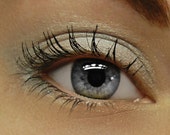

Warning bells rang again. The glare intensified until the glow in the sky was unendurable, but Bart looked anyhow, making out the strange shape of the Lhari ship from the stars.




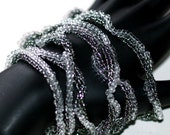

It was huge and strange, glowing with colors Bart had never seen before. It settled down slowly, softly: enormous, silent, vibrating, glowing; then swiftly faded to white-hot, gleaming blue, dulling down through the visible spectrum to red. At last it was just gleaming glassy Lhari-metal color again. High up in the ship's side a yawning gap slid open, extruding stairsteps, and men and Lhari began to descend.



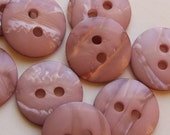


The crowd was thinning now. Robotcabs were swerving in, hovering above the ground to pick up passengers, then veering away. The gap in the starship's side was closing, and still Bart had not seen the tall, slim, flame-haired figure of his father. The port on the other side of the ship, he knew, was for loading passengers. Bart moved carefully through the thinning crowd, almost to the foot of the stairs. One of the Lhari checking papers stopped and fixed him with an inscrutable gray stare, but finally turned away again.



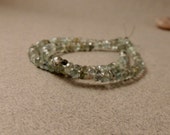


Bart began really to worry. Captain Steele would never miss his ship! But he saw only one disembarking passenger who had not yet been surrounded by a group of welcoming relatives, or summoned a robotcab and gone. The man was wearing Vegan clothes, but he wasn't Bart's father. He was a fat little man, with ruddy cheeks and a fringe of curling gray hair all around his bald dome.Maybe he'd know if there was another Vegan on the ship.



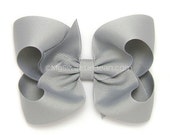
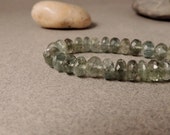

As he stepped back, Bart saw his eyes. In the chubby, good-natured red face, the stranger's eyes were half-mad with fear.






"The fuel catalyst—it's a strange color, a color you never saw anywhere. Can youthinkof a color that isn't red, orange, yellow, green, blue, violet, indigo or some combination of them? It isn't any of the colors of the spectrum at all. The fuel is a real eighth color."




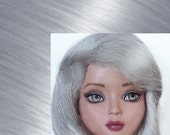

He pressed a button on the bulb in his hand; Bart gasped, feeling cold wetness on his head. His own hand came away stained black.






"I don't know any more than I've told you," Briscoe said. Abruptly the robotcab came to a halt, swaying a little. Briscoe jerked the door open, gave Bart a push, and Bart found himself stumbling out on the ramp beside the spaceport building. He caught his balance, looked around, and realized that the robotcab was already climbing the sky again.




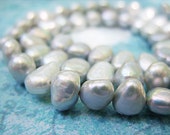

Immediately before him, neon letters spelledTO PASSENGER ENTRANCE ONLY. Bart stumbled forward. The Lhari by the gate thrust out a disinterested claw. Bart held up what Briscoe had shoved into his hand, only now seeing that it was a thin wallet, a set of identity papers and a strip of pink tickets.






Then a beam of light arced from one of the drawn energon-ray tubes. The robotcab glowed briefly red, then seemed to sag, sink together; then puddled, a slag heap of molten metal, on the glassy floor of the port. A little moan of horror came from the crowd, and Bart felt a sudden, wrenching sickness. It had been like a game, a silly game of cops and robbers, and suddenly it was as serious as melted death lying there on the spaceport.Briscoe!






The green stuff tasted a little brackish, but Bart got it down all right. He didn't much like the idea of drinking a solution of "germs," but he knew that was silly. There was a big difference between disease germs and helpful bacteria.






He glanced through them quickly. They were made out to David Warren Briscoe, of Aldebaran Four. According to them, David Briscoe was twenty years old, hair black, eyes hazel, height six foot one inch. Bart wondered, painfully, if Briscoe had a son and if David Briscoe knew where his father was. There was also a license, validated with four runs on the Aldebaran Intrasatellite Cargo Company—planetary ships—with the rank of Apprentice Astrogator; and a considerable sum of money.






One by one he picked out the constellations. Aldebaran swung on the pendant chain of Taurus like a giant ruby. Orion strode across the sky, a swirling nebula at his belt. Vega burned, cobalt blue, in the heart of the Lyre.






Colors, colors! Inside the atmosphere of Earth's night, the stars had been pale white sparks against black. Here, against the misty-pale swirls of cosmic dust, they burned with color heaped on color; the bloody burning crimson of Antares, the metallic gold of Capella, the sullen pulsing of Betelgeuse. They burned, each with its own inward flame and light, like handfuls of burning jewels flung by some giant hand upon the swirling darkness. It was a sight Bart felt he could watch forever and still be hungry to see; the never-changing, ever-changing colors of space.






Bart knew he must cut this short very quickly. He stepped out into the full corridor light so that Tommy could see his black hair.






The ship was streaking toward Procyon, a sol-type star, bright yellow; the three planets, Alpha, Beta and Gamma, ringed like Saturn and veiled in shimmering layers of cloud, swung against the night. Past them other stars, brighter stars, faraway stars he would never see, glimmered through the pale dust....






Bart pointed. "Aldebaran—that's the big red one there," he said. "Think of the constellation Taurus as a necklace, with Aldebaran hanging from it like a locket. Antares is much further down in the sky, in relation to the arbitrary sidereal axis, and it's a deeper red. Like a burning coal, while Aldebaran is like a ruby—"






He broke off in mid-word, realizing that Tommy was gazing at him in a mixture of triumph and consternation. Too late, Bart realized he had been tricked. Studying for an exam, the year before, he had explained the difference between the two red stars in almost the same words.






At first sight it was a disappointment. It was a Lhari spaceport that lay before him, to all appearances identical with the one on Earth: sloping glass ramps, tall colorless pylons, a skyscraper terminus crowded with men of all planets. But the sun overhead was brilliant and clear gold, the shadows sharp and violet on the spaceport floor. Behind the confines of the spaceport he could see the ridges of tall hills and unfamiliarly colored trees. He longed to explore them, but he got a grip on his imagination, surrendering his ticket stub and false papers to the Lhari and Mentorian interpreter who guarded the ramp.






His eyes exploded into pain; automatically his hands went up to shield them. Light, light—he had never known such cruelly glowing light. Even through the lids there was pain and red afterimages; but after a moment, opening them a slit, he found that he could see, and made out other doors, glass ramps, pale Lhari figures coming and going. But for the moment he was alone in the long corridor beyond which he could see the glass ramps.






The room was filled with brighter light than the Procyon sun outdoors, the edges of the furniture rimmed with neon in the Mentorian fashion. A prim-looking girl sat behind a desk—or what should have been a desk, except that it looked more like a mirror, with little sparkles of lights, different colors, in regular rows along one edge. The mirror-top itself was blue-violet and gave her skin and her violet eyes a bluish tinge. She was smooth and lacquered and glittering and she raised her eyebrows at Bart as if he were some strange form of life she hadn't seen very often.




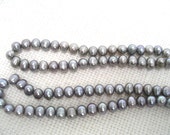

It rose higher and higher, stopping with an abrupt jerk, and slid open into a lighted room and office. A man sat behind a desk, watching Bart step from the elevator. The man was very tall and very thin, and the gray eyes, and the intensity of the lights, told Bart that he was a Mentorian.Raynor One?






Under the steady, stern gray stare, Bart felt the slow, clutching suck of fear again. Was this man a slave of the Lhari, who would turn him over to them? Or someone he could trust? His own mother had been a Mentorian.






The cold gray stare never altered. "On what business?"






Raynor punched a button, said to the image of the glossy girl at the desk, "Violet, get Three for me. You may have to send a message to theMultiphase."






It had to be Raynor Three; there was no one else he could have been. He was as like Raynor One as Tweedledum to Tweedledee: tall, stern, ascetic and grim. He wore the full uniform of a Mentorian on Lhari ships: the white smock of a medic, the metallic blue cloak, the low silvery sandals.






He said, "What's doing, One? Violet—" and then he caught sight of Bart. His eyes narrowed and he drew a quick breath, his face twisting up into apprehension and shock.






"If they had the same efficiency with red tape that we humans have, he'd never have made it this far."






Raynor Three gave him a gold-glinting, enigmatic glance. "I'm a Mentorian, remember? I'm good at not remembering things. Just be glad I remember Rupert Steele. If you'd been a few days later, I wouldn't have remembered him, though I promised to wait for you."






It began to descend, at last, toward a small green hill, bright in the last gold rays on sunset. A small domelike pink bubble rose out of the hill. Raynor Three set the copter neatly down on a platform that slid shut after them, unfastened their seat belts and gave Bart a hand to climb out.






"Bart, no," Raynor Three said. "You'd never get away with it. It's too dangerous." But his gold eyes glinted.






The narrow, long fingers were pearl-gray, tipped with whitish-pink claws that curved out over the tips. Nervously Bart moved one finger, and the long claw flicked out like a cat's, retracted. He swallowed.






His hair was bleached-white and fluffy, almost feathery to the touch. His skin was grayish-rose, and his eyelids had been altered just enough to make his eyes look long, narrow and slanted. His nostrils were mere slits, and he moved his tongue over lips that felt oddly thin.






He held out his hand. "This is the rough part, Son." His face moved strangely. "I'm part of this network between the stars, but I don't know what I've done before, and I'll never know how it comes out. It's funny to stand here and look at you and realize that I won't even remember you." The gold-glinted eyes blinked rapidly. "Goodbye, Bart. And—good luck, Son."






When the skycab let him off before the spaceport, it felt strange to see how the crowds edged away from him as he made a way through them. He caught a glimpse of himself in one of the mirror-ramps, a tall thin strange form in a metallic cloak, head crested with feathery white, and felt overwhelmingly homesick for his own familiar face.






There were small shops and what looked like bars, and a glass-fronted place with a sign lettered largely, in black letters, a Lhari phrase meaning roughlyhome away from home: meals served, spacemen welcome, reasonable.






"I was just wondering that myself." He turned as he spoke, finding himself face to face with a young Lhari in the unadorned cloak of a spaceman without official rank. He knew the Lhari was young because his crest was still white.






There was Lhari, in the black-banded officer's cloak, at the doorway. He glanced at Ringg's papers.






Ringg stepped back for Bart to go inside. The small cabin, with an elliptical bunk slung from the ceiling and a triangular table, was dwarfed by a tall, thin Lhari, in a cloak with four of the black bands that seemed to denote rank among them. He had a deeply lined face with a lacework of tiny wrinkles around the slanted eyes. His crest was not the high, fluffy white of a young Lhari, but broken short near the scalp, grayish pink showing through, the little feathery ends yellowed with age. He growled, "Come in then, don't stand there. I suppose Ringg's told you what a tyrant I am? What do you want, feathertop?"






"Papers, please?" She marked, and Bart noticed that she was using a red pencil.






"Bartol," she said aloud. "Is that how you pronounce it?" She made small scribbles in a sort of shorthand with the red pencil, then made other marks with the black one in Lhari; he supposed the red marks were her own private memoranda, unreadable by the Lhari.






The first week in space was a nightmare of strain. He welcomed the hours on watch in the drive room; there alone he was sure of what he was doing. Everywhere else in the ship he was perpetually scared, perpetually on tiptoe, perpetually afraid of making some small and stupid mistake. Once he actually called Aldebaran a red star, but Rugel either did not hear the slip or thought he was repeating what one of the Mentorians—there were two aboard besides the girl—had said.






The absence of color from speech and life was the hardest thing to get used to. Every star in the manual was listed by light-frequency waves, to be checked against a photometer for a specific reading, and it almost drove Bart mad to go through the ritual when the Mentorians were off duty and could not call off the color and the equivalent frequency type for him. Yet he did not dare skip a single step, or someone might have guessed that he couldseethe difference between a yellow and a green star before checking them.






The Academy ships had had the traditional human signal system of flashing red lights. Bart was stretched taut all the time, listening for the small codelike buzzers and ticks that warned him of filled tanks, leads in need of servicing, answers ready. Ringg's metal-fatigues testing kit was a bewildering muddle of boxes, meters, rods and earphones, each buzzing and clicking its characteristic warning.






Vorongil himself took the controls for the surge of Acceleration Two, which would take them past the Light Barrier. Bart, watching his instruments to exact position and time, saw the colors of each star shift strangely, moment by moment. The red stars seemed hard to see. The orange-yellow ones burned suddenly like flame; the green ones seemed golden, the blue ones almost green. Dimly, he remembered the old story of a "red shift" in the lights of approaching stars, but here he saw it pure, a sight no human eyes had ever seen. A sight thatnoeyes had seen, human or otherwise, for the Lhari could not see it....






Space, through the viewport, was no longer space as he had come to know it, but a strange eerie limbo, the star-tracks lengthening, shifting color until they filled the whole viewport with shimmering, gray, recrossing light. The unbelievable reaction of warp-drive thrust them through space faster than the lights of the surrounding stars, faster than imagination could follow.






"Me, too," Ringg said, almost in a whisper. "I think every man on board feels that way, a little, only he won't admit it." His slanted gray eyes looked quickly at Bart and away.






It was the first time that Bart, unaided, had had the responsibility of plotting a warp-drive shift. He checked the coordinates of the small green star three times before passing them along to Vorongil. Even so, when they went into Acceleration Two, he felt stinging fear.If I plotted wrong, we could shift into that crazy space and come out billions of miles away....






But when the stars steadied and took on their own colors, the blaze of a small green sun was steady in the viewport.






Bart, feeling the minute, unsteady trembling somewhere in the ship—Imagination, he told himself,you can't feel metal-fatigue somewhere in the hull lining—echoed the wish. He did not know that he had already had the best luck of his unique voyage, or realize the fantastic luck that had brought him to the small green star Meristem.






Bart had a sort of ship-induced claustrophobia. It was good to feel solid ground under his feet and the rays of a sun, even a green sun, on his back. Even more, it was good to get away from the constant presence of his shipmates. During this enforced idleness, their presence oppressed him unendurably—so many tall forms, gray skins, feathery crests. He was always alone; for a change, he felt that he'd like to be alone without Lhari all around him.






The sun overhead was a clear greenish-gold, the sky strewn with soft pale clouds that cast racing shadows on the soft grass underfoot, fragrant pinkish-yellow stuff strewn with bright vermilion puff-balls. Bart wished he were alone to enjoy it.






They had reached a line of tall cliffs, where a steep rock-fall divided off the plain from the edge of the mountains. A few slender, drooping, gold-leaved trees bent graceful branches over a pool. Bart stood fascinated by the play of green sunlight on the emerald ripples, but Ringg flung himself down full length on the soft grass and sighed comfortably. "Feels good."






Bart wondered, suddenly and worriedly, about the effects of green sunburn on his chemically altered skin tone.






For the back wall of the cave was an exquisite fall of crystal! Minerals glowed there, giant crystals, like jewels, crusted with strange lichen-like growths and colors. There were pale blues and greens and, shimmering among them, a strangely colored crystalline mineral that he had never seen before. It was blue—No, Bart thought,that's just the light, it's more like red—no, it can't be likebothof them at once, and it isn't really like either. In this light—






The hail had stopped, and the piled heaps were already melting, but it was bitterly cold. Bart wrapped himself in the silvery cloak, glad of its warmth, and struggled back across the slushy, ice-strewn meadow that had been so pink and flowery in the sunshine. TheSwiftwing, a monstrous dark egg looming in the twilight, seemed like home. Bart felt the heavenly warmth close around him with a sigh of pure relief, but the Second Officer, coming up the hatchway, stopped in consternation:






"It wasn't hailing when we left," Bart said wearily. "The sun was as nice and green as it could be." He bit the words off, realizing he had made a slip, but the girl seemed not to hear, fastening a strip of plastic over a cut. She picked up his wrist. Bart flinched in spite of himself, and Meta nodded. "I was afraid of that; it may be broken. Better let me X-ray it."






Bart set his teeth against a cry. "It's all right, I tell you. Just because it's black and blue—"






Bart felt himself slip sidewise; he thought for a moment that he would faint where he sat. Terrified, he looked up at Meta. Their eyes met, and she said, hardly moving her pale lips, "Your eyes—they're like mine. Your eyelashes—dark, not white.You're not a Lhari!"






Her gray eyes blazed at him for a moment; then, gently, she laid his wrist on the table, went to the infirmary door and locked it on the inside. She turned around, her face white; even her lips had lost their color. "Who are you?" she whispered.






Her gray eyes were wide as a kitten's. "Why, nothing. The Lhari would neverhurtanyone, would they?"






The green-sun Meristem lay far behind them. Karol's burns had healed; only a faint pattern on Ringg's forehead showed where six stitches had closed the ugly wound in his skull. Bart's wrist, after a few days of nightmarish pain when he tried to pick up anything heavy, had healed. Two more warp-drive shifts through space had taken theSwiftwingfar, far out to the rim of the known galaxy, and now the great crimson coal of Antares burned in their viewports.






Small as it was, it was blazingly blue-white brilliant, and had a tiny planet of its own. After their stop on Antares Seven—the largest of the inhabited planets in this system, where the Lhari spaceport was located—they would make a careful orbit around the great red primary, and land on the tiny worldlet of the blue-white secondary before leaving the Antares system.






"Good luck, Bart." There were tears in her gray eyes.



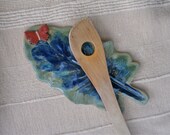
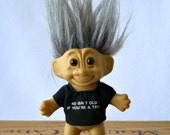

The address he had been given was a lavish estate, not far from the spaceport, across a little gleaming lake that shimmered red, indigo, violet in the crimson sunset, surrounded by a low wall of what looked like purple glass. Bart, moving slowly through the gate, felt that eyes were watching him, and forced himself to walk with slow dignity.



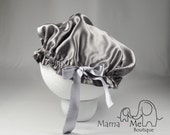
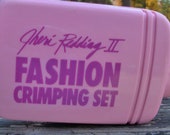

Up the path. Up a low flight of black-marble stairs. A door swung open and shut again, closing out the red sunset, letting him into a room that seemed dim after the months of Lhari lights. There were three men in the room, but his eyes were drawn instantly to one, standing against an old-fashioned fireplace.






He was very tall and quite thin, and his hair was snow-white, though he did not look old. Bart's first incongruous thought was,He'd make a better Lhari than I would.His firm, commanding voice told Bart at once that this was the man in charge. "You are Bartol?" He extended his hand.



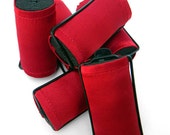
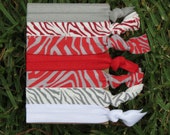

"Green."



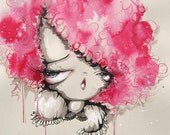
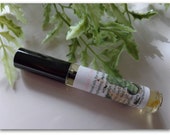

"Darker green, with gold and red figures."






The men released him, and the white-haired man smiled.



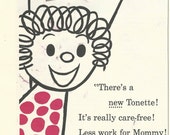


"Your next stop. The planetoid of the captive sun. That little hunk of bare rock out there is the first spot the Lhari visited in this galaxy—even before Mentor. It's an inferno of light from that little blue-white sun, so of course they love it—it's just like home to them. When they found that the inner planets of Antares were inhabited, they built their spaceport here, so they'd have a better chance at trade." Montano scowled fiercely.






Montano's face was perfectly calm. "No. We won't even try." He handed Bart a small strip of pale-yellow plastic.




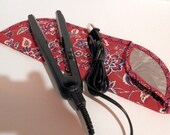

"Radiation-exposure film. It's exactly as sensitive to radiation as you are. When it starts to turn orange, it's picking up radiation. If you're aboard the ship, get into the drive chambers—they're lead-lined—and you'll be safe. If you're out on the surface, you'll be all right inside one of the concrete bunkers. But get under cover before it turns red, because by that time every Lhari of them will be stone-cold dead."



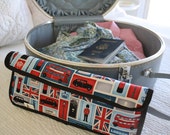
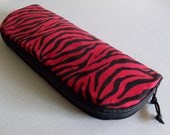

Ringg took a step backward. Then he said, very softly, "Suit yourself, Bartol. Sorry." And noiselessly, his white crest held high, he glided away.






He lay in his bunk brooding, thinking of death, staring at the yellow radiation badge.If you fail, it won't be in our lifetime.He'd have to go back to little things, to the little ships that hauled piddling cargo between little planets, while all the grandeur of the stars belonged to the Lhari. And if he succeeded, Vega Interplanet could spread from star to star, a mighty memorial to Rupert Steele.



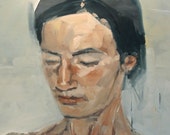


Bart set his teeth, steadying his breathing, as Ringg turned hopefully to him. "Bartol, did you—by mistake, maybe? Because if you did, it won't count against your rating, but it means a black mark against mine!"




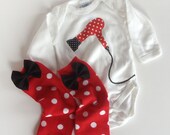

"Listen, you!" Ringg's pent-up rage exploded. He seized Bart by the shoulder and Bart moved to throw him off, so that Ringg's outthrust claws raked only his forearm. In pure reflex he felt his own claws flick out; they clinched, closed, scuffled, and he felt his claws rake flesh; half incredulous, saw the thin red line of blood welling from Ringg's cheek.



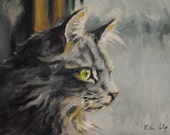
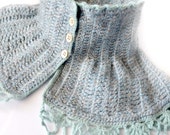

Then Rugel's arms were flung restrainingly around him, and the Second Officer was wrestling with a furious, struggling Ringg. Bart looked at his red-tipped claws in ill-concealed horror, but it was lost in a general gasp of consternation, for Vorongil had flung the drive room door open, taking in the scene in one blistering glance.






When the intercom ordered all crew members to the hatchway, Bart lingered a minute, pinning the yellow radiation badge in a fold of his cloak. A spasm of fear threatened to overwhelm him again, and nightmarish loneliness. He felt agonizingly homesick for his own familiar face. It seemed almost more than he could manage, to step out into the corridor full of Lhari.




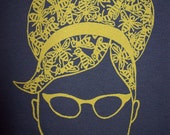

The hatch opened. Even accustomed, as he was, to Lhari lights, Bart squeezed his eyes shut at the blue-white brilliance that assaulted him now. Then, opening slitted lids cautiously, he found that he could see.



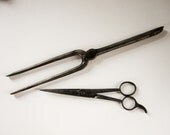


He paused, and Bart said through a catch of breath. "Quite an achievement." His badge still looked reassuringly yellow.






When it's red, you're dead.



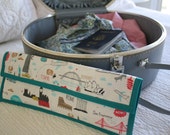


Well, Montano would be safe here in the bunker. Hastily, Bart looked at his timepiece. Half an hour before the radiation was lethal—for the Lhari. Was it already, for him? Shakily, he unfastened the door. He ran out into the glare, seeing as he ran that his badge was tinged with an ever-darkening, gold, orange....






Montano had said there was a safety margin, but maybe he was wrong, maybe all Bart would accomplish would be his own death! He ran back along the line of bunkers, his heart pounding with his racing feet. Two crewmen came along the line, young white-crested Lhari from the other watch. He gasped, "Where is the captain?"






At first he thought it was his ears ringing; then he made out the rising, shrieking wail and fall of the emergency siren, steps running, shouting voices, the slow clang of the doors. Someone was pushing at him, babbling words in Lhari, but he heard them through an ever-increasing distance: Vorongil's face bent over his, only a blurred crimson blob that flashed away like a vanishing star in the viewport. It flamed out into green darkness, vanished, and Bart fell through what seemed to be a bottomless chasm of starless night.






"As much as any Mentorian." Bart found he could move his right arm, and twitched the bandage away. Vorongil and the medic stood over him; in the other infirmary bunk a form was lying, covered with a white sheet. Sickly, Bart wondered if they had found Montano. Vorongil followed the direction of his eyes.






"Shift to warp," he said without thinking, and her face went deathly white. "So that's it," she whispered. "Vorongil—no wonder he wasn't worried about what I would find out from you or what you knew." She drew herself together in her chair, a miserable, shrunken, terrified little figure, bravely trying to control her terror.






The screaming whine in the ship gripped them with the strange, clawing lassitude and discomfort. Bart, gasping under it, heard the girl moan, saw her slump lax in her chair, half fainting. Her face was so deathly white that he began seriously to be afraid she would die of her fear. Fighting his own agonizing weakness, he pulled himself upright. He reached the girl, dug his claws cruelly into her.






Bart felt his hold on himself breaking. He whispered hoarsely, "That's the girl—don't be scared if I—black out for a minute." He held on to consciousness with his last courage, afraid if he fainted, the girl would collapse again.






She reached for him, and Bart, starved for some human touch, drew her into his arms. They clung together, and he felt her wet face against his own, the softness of her trembling hands. She was still crying a little. Then the blackness closed on him, as if endless, and the gray blur of warp-drive peak blotted his brain into nothingness.






"Different," Bart finished for her. "At first I was repelled—physically repelled by myself, and by them. It was like living among weird animals, and being one of the animals. And then, one day, Ringg was just another kid. He had gray skin and long claws and white hair, just the way I once had pinkish skin and short fingernails and reddish hair, but the difference wasn't that I was human inside and he wasn't. If you skinned Ringg, and skinned me, we'd be almost identical. And all of a sudden then, Ringg and Vorongil and all the rest were men to me. Just people. I thought you Mentorians, after living with the Lhari all these years, would feel that."






Years later—he never knew whether it was memory or imagination—it seemed to him that he could reach into that patch of gray and dreamless time and fish out questions and answers whole, the faces of Lhari swelling up suddenly in his eyes and shrinking back into interstellar distance, the sting-smell of drugs, the sound of unexpected voices, odd reflex pains, cobwebs of patchy memories that fitted nowhere else into his life so that he supposed they must go here.




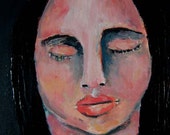

He only knew that there was a time he did not remember and then a time when he began to think there was such a thing as memory, and then a time when he floated without a body, and then another time when the path of every separate nerve in his body seemed to be outlined, a shimmering web in the gray murk. There was a mirror and a face. There were blotchy worms of light like the star-trails of peaking warp-drive through the viewport, colors shifting and receding, a green star, the red eye of Antares.



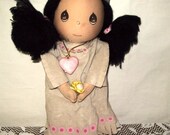


The liquid felt cool on his tongue, evaporating almost before he could swallow; the fumes seemed to mount inside the root of his nose, expanding tremendously inside his head and brain. Abruptly his head was clear, the last traces of gray fuzz gone.






Inside a room rose, high, domed, vaulted above his head, whitish opalescent, washed with green. For a moment, while his eyes adjusted to the light, he wondered how the Lhari saw it.






Beyond an expanse of black, glassy floor, he saw a low semicircular table, behind which sat eight Lhari. All wore pale robes with high collars that rose stiffly behind their domed heads; all were old, their faces lined with many wrinkles, and seven of the eight were as bald as the hull of theSwiftwing. Under their eyes he hesitated; then, unexpectedly, pride stiffened his back.



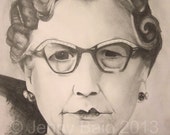


No one moved until he stood before the semicircle of ancients. Then the youngest, the only one of the eight with some trace of feathery crest on his high gray head, said "Captain Vorongil, you identify this person?"






He smiled, his gnome's face breaking into a million tiny cracks like a piece of gray-glazed pottery. "Bartol, or whatever you call yourself, you are a brave young man. I suppose you are afraid we will block your memories, or your ability to speak of them?"






Bart held out his arm, less gray by the day as the drug wore out of his system. The thin line of the scar was still on it. He raised his forefinger lightly to the fine line on Ringg's cheek. "I couldn't return that now. So let's not get into any more fights."






"Meta, what color is this sun? I've been all around the spectrum, and it's not red, blue, green, orange, violet—" He broke off, realizing what he had said and what he had seen. "An eighth color," he finished, anticlimatically.






He was under parole not to enter the drive chamber (and sure he would be stopped if he attempted it anyhow), but when Acceleration One was completed, he went to the viewport in the Recreation Lounge, and nobody threw him out. He stood long, looking at the unfamiliar galaxy of the Lhari stars; the unknown, forever unknowable constellations with their strange shapes. Stars green, gold, topaz, burning blue, sullen red, and the great strangely colored receding sun of the Lhari people, known to them by the melodious name of the Ke Lhiro—which meant, simply,The Sun: it was their first home.






He turned away from the unsolvable riddle of the strange constellations; and went to his cabin, to dream of the green star Meristem where he had first plotted known coordinates for a previously unknown world, and to wander in baffling nightmares where he fed jagged, star-colored pieces of hail into the ship's computer and watched them come out as tiny paperdoll spaceships with the letterhead of Eight Colors printed neatly across their sides.






Before answering, he looked out the viewport a last time. The clouds of cosmic dust swirled and foamed around the familiar jewels of his own sky. Blue, beloved Vega, burning in the heart of the Lyre—home—when would he go home? He had no home now.Yet his father had left him Vega Interplanet, as well as Eight Colors and a quest to the stars.






But a sudden, blinding light burst over Bart as Ringg moved his hand to the scars. Once again he searched a cave beneath a green star, where Ringg lay unconscious and bleeding, and played his Lhari light fearfully over a waterfall of colored minerals.And there was one whose color he could not identify—red, blue, violet, green, none of these—the color of an unknown star in an unknown galaxy, the shimmer of a landing Lhari ship, the color of an unknown element in an unknown fuel—






In the hearing room, four white-crested Lhari sat across from four dignified, well-dressed men, representatives of the Federation of Intergalactic Trade. The space beyond was wholly filled with people, crowded together, and carrying stereo cameras, intercom equipment, the creepie-peepie of the on-the-spot space commentator.






The effect was electric. The four Lhari sat up; their white crests twitched. Vorongil stared, his gray eyes darkening with fear. One of the Lhari leaned forward, shooting the question at him harshly.






"I did not," Bart said quietly. "I don't know them and I have no intention of trying to find them. We don't need to go to the Lhari Galaxy to find the mineral that generates the warp-frequencies, that they call 'Catalyst A' and that the Mentorians call the 'Eighth Color.' There is a green star called Meristem, and a spectroscopic analysis of that star, I'm sure, will reveal what unknown elements it contains, and perhaps locate other stars with that element. There must be others in our galaxy, but the coordinates of the star Meristem are known to me."






"So no one but I saw the color of the mineral in the cave; you Lhari yourselves don'tknowthat your fuel looks unlike anything else in the universe. You never cared to find out how your world looked to your Mentorians. So your medics never questioned my memories of an eighth color. To you, it's just another shade of gray, but under a light strong enough to blind any but Mentorian eyes, it takes on a special color—"






Linc Hosler was sitting in a packed football stadium when the Flying Eyes appeared and cast their hypnotic power over half the crowd. Thousands of people suddenly began marching zombie-like into the woods where they vanished into a black pit.






Here is the life story of Robert F. Kennedy, the President's "chief trouble-shooter, crisis smoother and selfless rooter" (Look); the man who is "second only to the President in power and influence" (U.S. News and World Report): the man who may be eyeing the White House for his own future occupancy.






MS11 THE RED CARPET by Ezra Taft Benson A grim warning against socialism—the royal road to communism.






K56 SIR WINSTON CHURCHILL by Edgar Black





